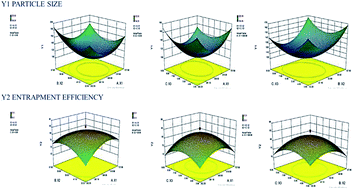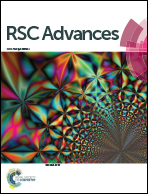Tumor homing peptide modified liposomes of capecitabine for improved apoptotic activity and HER2 targeted therapy in breast cancer: in vitro studies
Abstract
In the present study, we have formulated a liposomal formulation of cytotoxic agent capecitabine (CAP) to overcome its bioavailability issues. Then we have surface modified CAP loaded liposomes (CAP-LPs) with a tumour homing peptide (THP-CAP-LPs) to achieve site specific delivery to breast cancer cells. We found a significant cellular internalization of THP-CAP-LPs when compared to unmodified CAP-LPs. The cytotoxic effect of CAP was also significantly improved with THP-CAP-LPs by downregulating anti-apoptotic proteins and upregulating pro-apoptotic proteins as observed by Western blot analysis. THP-CAP-LPs mediated delivery of CAP can be, therefore, a promising approach for improving antitumor activity and reducing off-target effects.



 Please wait while we load your content...
Please wait while we load your content...